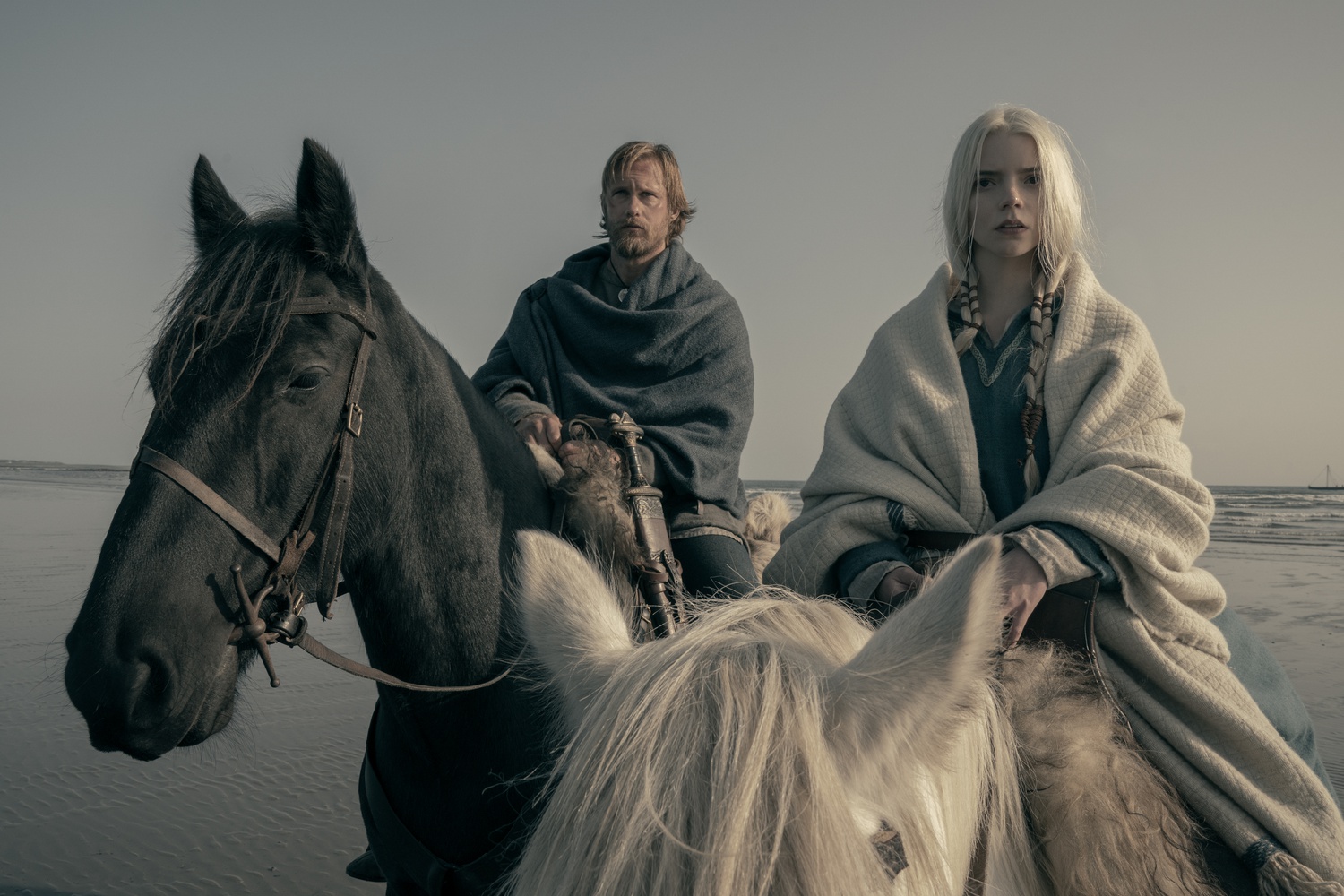
News
Summers Will Not Finish Semester of Teaching as Harvard Investigates Epstein Ties

News
Harvard College Students Report Favoring Divestment from Israel in HUA Survey

News
‘He Should Resign’: Harvard Undergrads Take Hard Line Against Summers Over Epstein Scandal

News
Harvard To Launch New Investigation Into Epstein’s Ties to Summers, Other University Affiliates

News
Harvard Students To Vote on Divestment From Israel in Inaugural HUA Election Survey
'The Northman' Review: A Tediously Stoic Adaptation of Hamlet
Dir. Robert Eggers — 3.5 Stars

Hamlet returns to his Scandinavian origins as Amleth in director Robert Eggers’s new historical epic “The Northman.” Told through a series of titled vignettes, the film follows the well-known story of Prince Amleth (Alexander Skarsgård) as he struggles to avenge his uncle Fjölnir’s wrongful murder of his father and save his mother Gudrún (Nicole Kidman) from her marriage to Fjölnir. Although replete with all the dark moodiness and savagery one expects from an Eggers film, “The Northman” tragically fails to extract any deep emotional investment from its audience.
Thrumming with Nordic tribal beats and imposing Icelandic landscapes, “The Northman” introduces its audience to the primal, brutal world of the Vikings with effective iciness. Villages are savagely raided, innocents slaughtered, women raped, and children burned in front of the cold-blooded camera’s roving eye, which glides from one barbaric feat to the next with a strange sense of documentary detachedness.
Worldbuilding is usually Eggers’ strong point — previous works like “The Witch” (2015) and “The Lighthouse” (2019) are both testaments to the director’s skill in crafting a consistent tone and mood and in recreating historical landscapes with anthropological accuracy. Compared to these past triumphs, however, “The Northman” feels somewhat lackluster in this regard. Rituals involving hallucinatory drinks and human sacrifices occur frequently and with little to no context in the film, creating a sense of alienation unalloyed with moments of tenderness or intimacy in the narrative. Eggers unflinchingly — almost gleefully — depicts the ferocious nature of Viking culture and of his equally violent characters. But at some point, extreme violence stops being novel and starts becoming tedious. At no point in the film can a viewer empathize with any of the characters on screen, except maybe with Gudrún, whose late-stage confession of marrying Amleth’s uncle to save herself from a loveless marriage with his father is the closest the audience ever gets to witnessing a character’s humanity.
Even the violence in the film feels coquettish at times: The camera always coyly avoids truly outrageous visuals, like a set of mutilated bodies hanging from pikes on a hut or Amleth and his lover Olga’s naked bodies during a love scene. Although certain scenes attest to Eggers’ visionary aesthetics — a terrifying Valkyrie emits a shrill battle-cry and rides into the heavens on her winged horse, and a fully-naked Amleth and Fjölnir swing swords at each other inside of a burning volcano — the visuals in “The Northman” as a whole feel more appropriate to a pseudo-documentary film about Vikings rather than what’s supposed to be an emotionally moving heroic tale.
In fact, “The Northman” feels more like an epic poem accompanied by sound and visuals rather than a true cinematic reimagining of the classic tragedy of Amleth (or Hamlet). The dialogue, spoken with varying vaguely Scandinavian-sounding accents and co-written by Icelandic poet and novelist Sjón, has all the stilted formality of Shakespearean English without the imaginative poetry. The result is a script as cringey to listen to as it is difficult to understand. “I will avenge you, Father. I will save you, Mother. I will kill you, Fjölnir,” becomes the steadfast mantra both for a young, traumatized Amleth who witnesses his father’s brutal death and for a grown Amleth who disappointingly never evolves from the single-mindedness of his youth.
Skarsgård’s acting is simultaneously stoic and simmering with hidden emotion, but the script unfortunately renders him little more than a ripped and roaring sword-wielder. Anya Taylor-Joy as Olga plays up the wiliness of her witchy character wonderfully, but ultimately remains shallow and unexplored as the script transforms her into a mechanism for Amleth’s lineage by impregnating her with twins.
Amleth is at heart a story about revenge that’s been told and retold so many times that the narrative has almost become a cliché. But where Shakespeare’s “Hamlet” and other modern adaptations of the tale complicate the hero’s arc or at the very least introduce philosophical questions that raise the story from its literalness, “The Northman” stubbornly (and mistakenly) sticks to the original text as unimaginatively as possible. It’s a surprising move for a director as unconventional and interested in deep psychological inquiry as Eggers. The consequence is a narrative that is as predictable as it is gory.
Want to keep up with breaking news? Subscribe to our email newsletter.
